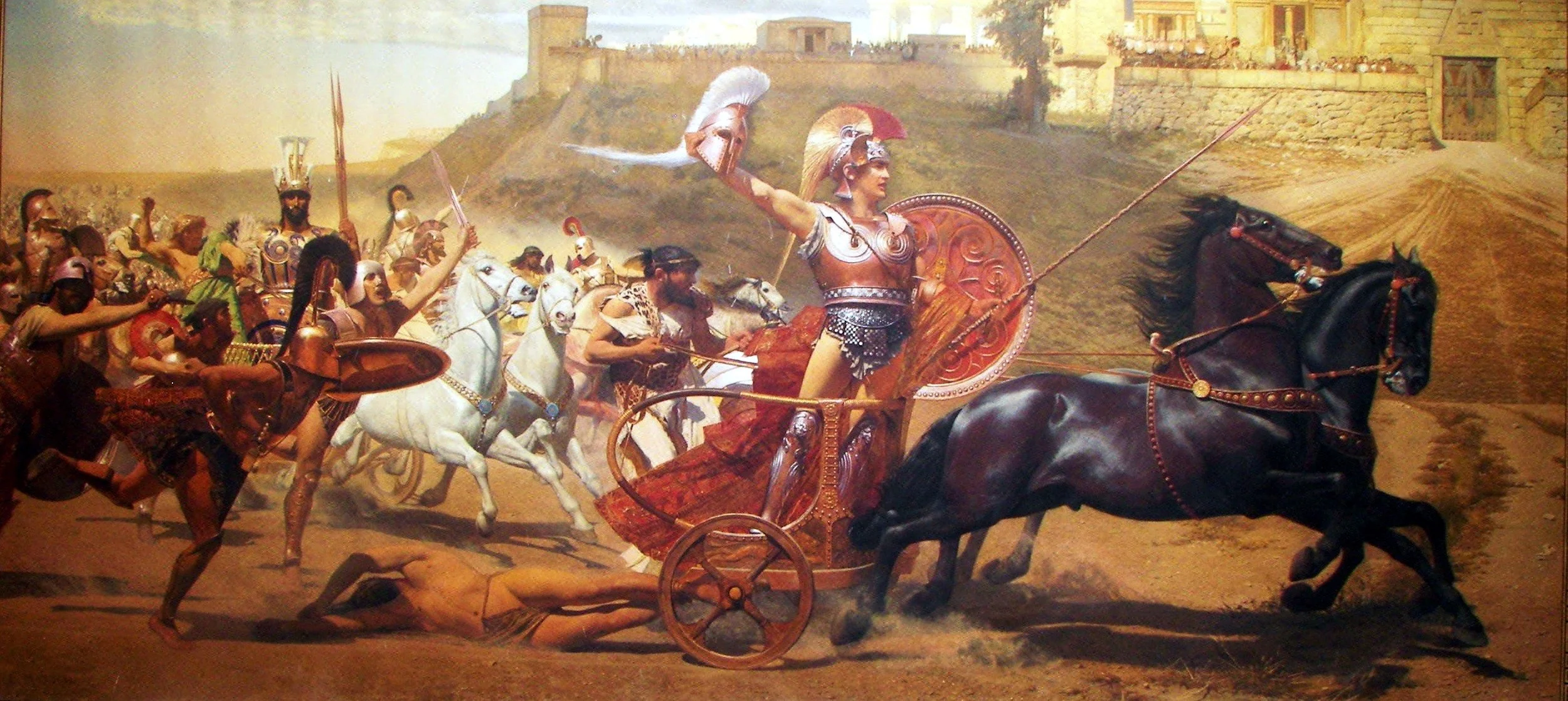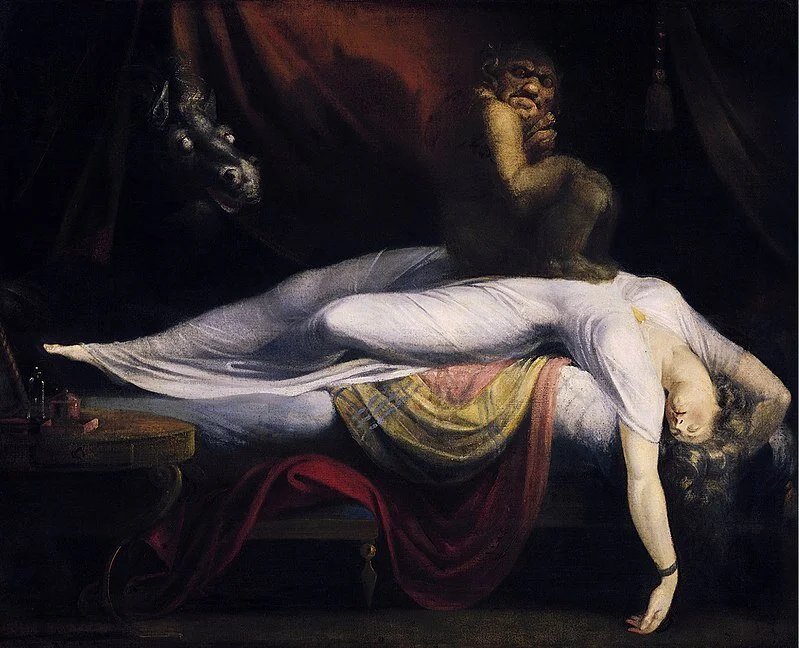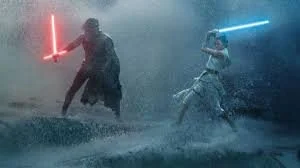The Grace of Kings, by Ken Liu, combines familiar tropes of modern fantasy with the grandeur of a classical heroic epic. The resulting hybrid is complicated, tragic, and triumphant, at once sweeping in scope and intimately grounded in the lives of its characters, and unafraid to test the strengths and weaknesses of its own heroic ideals.
The novel begins with a daring gambit: A lone assassin soars high above the earth, flying in a winged mechanical kite shaped like a giant white falcon. Far below, Emperor Mapidéré, ruler of the island kingdoms of Dara, travels with an extravagant procession of dancers, musicians, and soldiers, unsuspecting of the threat. The Imperial roadshow is intended to remind Mapidéré’s subjects of his authority and power, lest they forget that he unified Dara through military might and thirty years of bloody conquest. The assassin, for one, has not forgotten. He dive-bombs the procession, attacking the emperor with firebombs, seeking to avenge one of the conquered kingdoms. Mapidéré escapes unharmed, but the assassin’s gambit foreshadows the means by which a new and more just political order will one day rise from the bitter ashes of the empire’s destruction.
Ken Liu. Photo © Lisa Tang Liu.
But I’m getting ahead of myself. The new political order that will free the people of Dara from tyranny is no more than a distant dream when the assassin strikes; before the world can change for the better, the story must find its hero.
Actually, there are two heroes in The Grace of Kings, each embodying the ideal of a different heroic tradition. Kuni Garu, a charismatic commoner with a penchant for getting himself into and out of trouble, is the unlikely/reluctant hero so often found in modern epic fantasy (think Frodo Baggins and Samwise Gamgee in The Lord of the Rings, or John Snow in A Song of Ice and Fire/Game of Thrones). When we first meet him, Kuni has no grand ambitions; he seeks neither fame nor power nor glory. Instead, he is content to drift on the wind like a dandelion seed, taking root and flourishing wherever he lands. In order to become a hero, he must face a series of temptations and trials and be transformed (hero’s journey, anyone?).
In contrast, Mata Zyndu, the last descendent of a noble warrior clan, is a classical epic hero, a man born into greatness and seemingly destined to bend the world to his will. Standing eight feet tall, Mata is literally larger than life, like a legend from Dara’s mythic past come to life. His skill in combat is matched only by his desire to destroy the empire and restore the old political order of independent kingdoms, which he believes reflects the natural order of the universe.
As the story unfolds, we discover that nothing in Liu’s vividly imagined world is absolute, not even the ideals of our heroes. While Mata is without equal on the battlefield, his uncompromising pursuit of martial glory and merciless authoritarianism end up poisoning the reservoirs of trust necessary to establish lasting peace and a stable society. Violence and retribution, even in pursuit of justice, beget only more of the same. Conversely, Kuni’s cleverness and ability to win hearts and minds cannot counter the existential threat posed by an enemy’s military might.
Liu doesn’t belabor these points, or the obvious implication that a blending of the two heroic ideals is required to build and sustain a truly just and equitable society, one based on authoritative leadership rather than authoritarian rule. Instead, he sets the heroes on their journeys and lets their respective transformations speak for themselves.
The larger-than-life heroes of classical epics are often depicted seeking martial glory and violent retribution against their enemies. Here, Greek hero Achilles desecrates the body of Trojan hero Hector. Advice to aspiring heroes of the modern age: Sometimes you have to fight for what’s right, but don’t be like those guys.
Kuni and Mata first become allies in a rebellion against the empire, then rivals in the fraught aftermath of the empire’s downfall. Mata’s victories on the battlefield are epic, but it is Kuni who captures the Imperial capital in a cunning raid that is one of the novel’s most inspired and memorable set pieces. For a brief moment, a new heroic ideal seems poised to emerge. We imagine that Kuni’s compassion will temper Mata’s severe judgments, and that Mata’s willingness to match force with force will discourage future violence.
Unfortunately, Mata can’t see beyond his own heroic ideal. Trapped in a worldview defined by rigid notions of honor and dishonor, he becomes convinced that Kuni has betrayed him, and the opportunity for cooperation is lost. Mata declares himself hegemon of Dara, ushering in an era of martial law that isn’t much of an improvement over the old Imperial order. Kuni is exiled to a remote island kingdom, where his activities are monitored by the ruler of the neighboring island, who is loyal to Mata.
The final two acts of the novel bring Kuni and Mata full circle in their now-conflicting hero’s journeys. Kuni returns to the mainland to challenge the hegemon’s cruel regime, finally having learned that he must emulate the strengths of Mata’s epic heroism if he hopes to make the world a better place. Meanwhile, Mata’s arc bends toward tragedy, as he discovers too late the importance of compassion, mercy, and forgiveness. When Mata makes his last stand against Kuni’s army on a snowbound beach, his back to the sea in a scene that would fit seamlessly into the Iliad or the Odyssey, it is the self-destructive fulfillment of a heroic ideal that cannot escape the violence it glorifies.
After Mata’s death, Kuni becomes emperor. It is the beginning of a new age in Dara, an age of justice and peace. There is hope for the future, but also uncertainty. Will Kuni, now transformed and empowered, be able to live up to his new heroic ideal? The question is left unanswered, to be taken up again (and further complicated) in the sequel, The Wall of Storms.
Nobody’s perfect in modern epic fantasy, but siding with the reluctant hero is usually your best bet if you want to save the world.
It is refreshing that Liu’s expansive vision of heroism includes tragedy as well as triumph. Mata, for all his failures, is never portrayed as a villain, just as Kuni is never exalted as righteous. Both heroes are flawed, and both make grave mistakes. And yet Liu always leaves room for compassion. Even as we witness Kuni’s and Mata’s darkest moments, we are cautioned to withhold judgment, to offer empathy instead of condemnation, to consider that our choices are shaped as much by forces beyond our control as by our will.
This does not absolve Kuni and Mata of responsibility for the consequences of their actions, or suggest that fate holds sway in a deterministic universe. Rather, it is simply an acknowledgement that, as one of Kuni’s most trusted advisors says, “All life is an experiment.” Failure is inevitable, yes; it is also an opportunity to learn and adapt, to grow and change, to try a new path or a new way of doing things, if we have the courage. Of all the heroic ideals embodied in The Grace of Kings, this might be the most important.














There is so much out there to read, and until you get your turn in a time loop, you don’t have time to read it all to find the highlights.